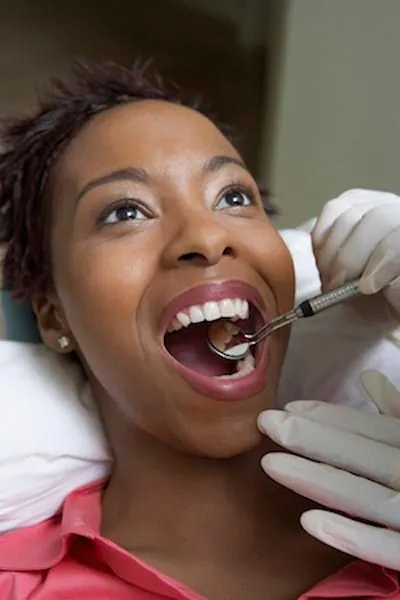At Acre Wood Dental, we understand the way your oral health will impact your overall wellness. Our preventive procedures provide resources to help you achieve better health outcomes and to keep your smile looking and feeling its best. Stop dental issues before they start with our variety of solutions, from exams and cleanings to sealants and mouth guards. At Acre Wood Dental in Waco, we have a solution for you to achieve the best possible outcome for your oral health.
Acre Wood Dental is proud to offer family dentistry, providing preventive care and basic dental work for all ages in our Waco location.
Our top preventive dental services in Waco, TX include:
Dental Exams

Preventive Cleanings
Preventive dental cleanings are one of the best ways to take charge of your oral health. Cleanings remove plaque and tartar to maintain healthy gum tissue and prevent infections. Left untreated, plaque and tartar can lead to tooth decay and gum disease. Preventive cleanings can also reduce the risk of periodontal disease and resulting tooth loss. Want a brighter smile and fresher breath? A preventive cleaning at Acre Wood Dental can help!
Fluoride/Varnish Treatment
Fluoride/Varnish treatment is a topical application that can prevent and even reverse early tooth decay by strengthening tooth enamel. The varnish is painted onto the teeth and serves as a barrier and protectant, making smiles more resistant to decay-causing bacteria.
Dental Sealants
Acre Wood Dental also offers sealants, another method to prevent bacteria from harming teeth. Sealants utilize a thin plastic coating applied to the chewing surfaces of permanent molars. These treatments are non-invasive, less expensive than a dental filling, and can last several years.
Silver Diamine Treatment (SDF)
We offer silver diamine fluoride treatment, or SDF, a quick and painless topical treatment to treat tooth sensitivity. SDF can stop decay and help prevent new cavities from forming. This antimicrobial treatment is an affordable and non-invasive solution for some patients.
Teeth Desensitizing Treatments
Sensitive teeth can impact your livelihood due to pain while eating, drinking, and even brushing. Worn tooth enamel, exposed roots, or injured teeth can be the culprit. Acre Wood Dental can identify the cause of your pain and offer treatments that include fluoride application or dental sealants.
Mouthguards for Bruxism

Schedule Your Preventive Appointment for a Healthier Smile
Contact Acre Wood Dental in Waco today to schedule your appointment and start the path to a healthier smile today!
